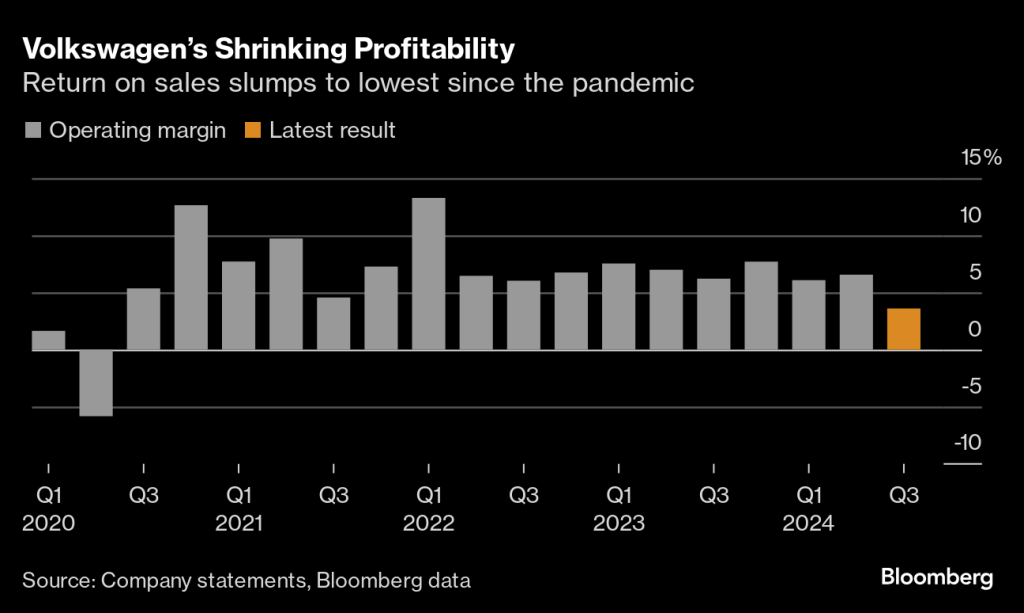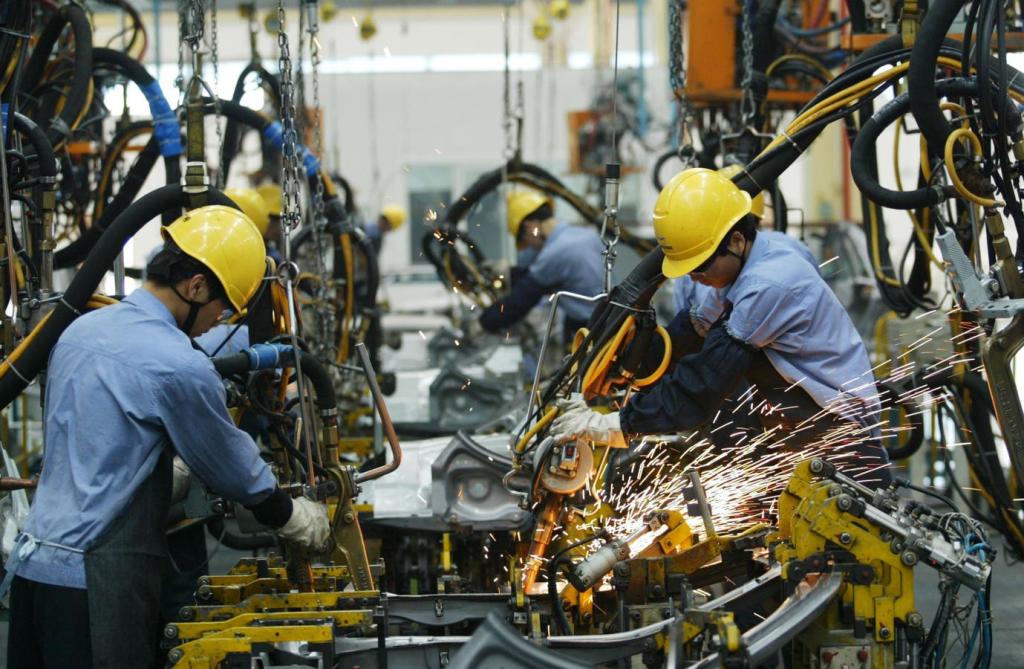Volkswagen Faces Financial Struggles and Labor Challenges
Volkswagen navigates severe financial struggles and labor tensions while seeking innovative solutions to remain competitive in a challenging automotive landscape.

Key Points
- Volkswagen
reported a drastic 64% decline in net profit amid rising costs and intensified competition, particularly in the Chinese market.
- Labor tensions escalate as the company plans to close factories and lay off thousands, prompting potential strike actions from worker unions.
- In response to challenges, Volkswagen is focusing on innovative solutions and efficiency improvements to adapt to the evolving automotive landscape.
As one of the pillars of the global automotive industry, Volkswagen is facing significant challenges that threaten its stability and future growth. Recent reports reveal a staggering decline in profits, coupled with escalating costs and labor tensions. With the potential closure of plants in Germany and the prospect of mass layoffs, Volkswagen's path forward remains fraught with uncertainty.

Financial Struggles: The Numbers Speak
Volkswagen reported a staggering 64% drop in net profit for the third quarter of 2024, with earnings plummeting from €4.35 billion to just €1.58 billion. This significant downturn is primarily attributed to a decline in sales, particularly in the crucial Chinese market, where competition from local manufacturers has intensified. The company's operating profit fell sharply as well, down 42%, underscoring the pressing need for profound cost reductions and operational efficiency.
To put this into perspective, Volkswagen's revenue for the third quarter barely edged down by 0.5% to around €78.5 billion, yet the earnings before interest and taxes (EBIT) took a hit, decreasing to €2.86 billion. These figures paint a clear picture of a company grappling with fierce market pressures and a rigid operational structure.
Labor Tensions: A Powder Keg Situation
Amidst these financial woes, labor relations at Volkswagen are increasingly strained. The company announced plans to close at least three factories in Germany, along with potential staff layoffs that could affect tens of thousands. These proposals have catalyzed protests and unrest among employees, who are understandably concerned about their job security.
The chair of the works council,
, has emphasized the necessity for a comprehensive plan that prioritizes job retention over plant closures. The union,
, has set the stage for potential strike actions, especially as the deadline for their demand for a 7% wage increase approaches.
Market Pressures: The Evolving Automotive Landscape
Volkswagen is not alone in its struggles; as the automotive industry undergoes a seismic shift towards electric vehicles (EVs), many manufacturers are feeling the heat. Increased competition from affordable Chinese EV brands like BYD and NIO has altered the market dynamics. This shift highlights the urgent need for Volkswagen to innovate and adapt its product offerings effectively.
Moreover, the rising costs of energy and raw materials, alongside administrative challenges and bureaucracy, have exacerbated Volkswagen's operational difficulties. As stated by CFO
, these factors underscore the critical need for the automaker to restructure and enhance efficiency.

Path Forward: Opportunities Amid Challenges
Despite the daunting circumstances, there are reasons for cautious optimism. Antlitz's comments indicate that Volkswagen is working on performance improvement programs aimed at overcoming the current challenges. The company acknowledged a slight uptick in order intake in Western Europe during the latter half of the year, hinting at potential recovery.
Moreover, Volkswagen's leadership recognizes the necessity for a robust plan that not only addresses financial concerns but also illustrates a commitment to its workforce. Engaging effectively with employee representatives could pave the way for innovative solutions that balance fiscal prudence with workforce stability.
Conclusion
The journey ahead for Volkswagen is undoubtedly complex and filled with obstacles. The financial struggles, coupled with labor tensions, create a challenging environment that requires adept navigation. However, by leveraging the lessons learned and focusing on innovation and efficiency, Volkswagen has the potential not only to survive but to emerge stronger in the evolving landscape of the automotive industry.


